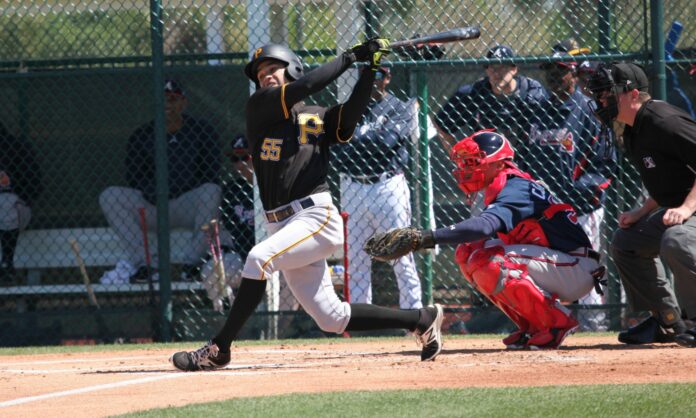A few notes on international amateur players from recent news.
Back in late January, we mentioned that 21-year-old Cuban shortstop Yolbert Sanchez would be able to sign on February 5th after being cleared by Major League Baseball. He hasn’t been signed yet, which could be a good sign for the Pittsburgh Pirates if they are interested. The Baltimore Orioles had nearly $6,000,000 left in their bonus pool, which was over four times the amount of any other team. The Pirates at the time had just $613,500 remaining in their pool, but that number has dropped significantly with six players signed over the last month.
With no other team being able to make a competing offer, it seemed like he was destined for the Orioles. However, there was also the option to wait until July 2nd when all of the pools reset and many more teams could enter the bidding war.
The Orioles haven’t been sitting on their hands these last five weeks. They have actually signed eight international players since Sanchez has become available. They have also traded away some of that slot money, as the signing period begins to wind down (ends June 15th). So it’s possible that the Pirates could have a chance to sign the prized shortstop. That will all depend on whether he continues to wait and how much money they already have set aside for July 2nd signings who agreed to contracts early this year, which is a common practice among the best 16-year-old players. The Pirates will be able to spend just over $6,000,000 during the 2019-20 signing period.
Sanchez isn’t the only Cuban player of note available. The Pirates were one of numerous teams scouting 17-year-old right-handed pitcher Luis Vega in the Dominican Republic last week. He’s 6’4″, 175 pounds, so there is room to fill out, but he already throws 90 MPH and has excellent control. Vega impressed scouts with his curve, slider and changeup according to reports, as well as the movement on his fastball and his ability to throw strikes. Just like with Sanchez, the Pirates can only compete for him if he waits to sign, but waiting to sign wouldn’t prevent the Pirates from negotiating ahead of time with either player.
Finally, MLB and Mexico finally agreed to a deal to allow players from that country to sign. There haven’t been any signings out of Mexico during the 2018-19 international signing period.
In the past, players from Mexico would sign with teams in their own country first, then those teams would usually take 75% of their bonus money. The 25% that the player received was all that counted against team’s international bonus pool. So if a team signed a player for a $100,000 bonus, the player received just $25,000, which counted against the bonus pool.
That worked out well for the Pirates during the 2018-19 signing period, because it allowed them to spend over their bonus pool by signing seven players from Mexico. That group included Fabricio Macias (pictured above), who was one of the top available players in the country. Since only 25% of those seven bonuses counted against the pool, the Pirates actually spent more than their hard cap limit.
That has changed now, which is worse for teams both in the U.S. and Mexico, but better for the players. MLB teams will now negotiate a contract with the players, who will receive 100% of the bonus. The teams in Mexico will then get 35% of the bonus amount as a fee for releasing the players, which won’t count against the bonus pool. A $100,000 bonus to a player now will cost MLB teams $135,000, with $100,000 going against the bonus pool.
This timing really doesn’t help the Pirates. They don’t have much left in their bonus pool money, which would eliminate them from signing any of the top players now available before July 2nd. It also takes away the part of the system they used to their advantage in 2018-19 when they spent beyond their hard cap limit without breaking any rules.



